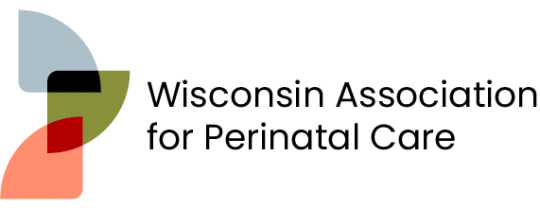UWM’s School of Nursing has a long history of and dedication to maternal and infant health. In fact, Child, Family, and Reproductive Health is one of the major research groups our faculty are focused on. Part of this dedication by our faculty and students includes involvement with the Wisconsin Association of Perinatal Care (WAPC). In October, WAPC held their 53rd annual conference, in which multiple faculty members (Haase, Johnson, Holt, Talsma) and several PhD students presented their work on maternal and infant health. This conference brings together scholars, researchers and students in maternal and infant health, and provides the perfect platform to delve into cutting-edge topics.
A current PhD student, Doris Naa Adoley Richardson, reflected on the conference below. Doris’ research specializes in maternal and infant health. Under the guidance of Dr. Barbara Haase, their team presented a thought-provoking poster on Lactation Education for Healthcare Providers.
“One of the highlights was a presentation on the Exclusive Human Milk Diet (EHMD) championed by Prolacta, addressing nutritional risks in premature infants. The EHMD not only enhances the survival of these vulnerable infants but also presents a cost-effective approach, which I believe could be transformative for infants in Low and Middle-Income countries like my own.
Engaging presentations on the impact of substance use during pregnancy and the prevention of Sudden Unexpected Infant Death (SUIDS) were eye-opening. The innovative solution presented for SUIDS prevention particularly caught my attention, considering it is an unfamiliar challenge in my home country.
Moreover, the conference shed light on advancements in Peri Data usage, thanks to the expertise of Dr. Akke Neeltje Talsma and Dr. Jeana Marie Holt from UW-Milwaukee. As a student, demystifying Peri Data complexities has made it more accessible and user-friendly.
Beyond the academic insights, WAPC proved to be a catalyst for building meaningful connections. It deepened student-faculty relationships, fostering unique connections with leaders in nursing, maternal and infant health, and affiliated disciplines. These connections enrich my network, fortifying my journey toward a successful Ph.D.
In essence, the WAPC was not just a conference; it was an immersive experience that broadened my horizons and connected me with transformative ideas and influential individuals. I look forward to integrating these learnings into my ongoing doctoral journey.”
Research collaboration is key to advancing nursing science. Learn more about the areas of research within the School of Nursing.
